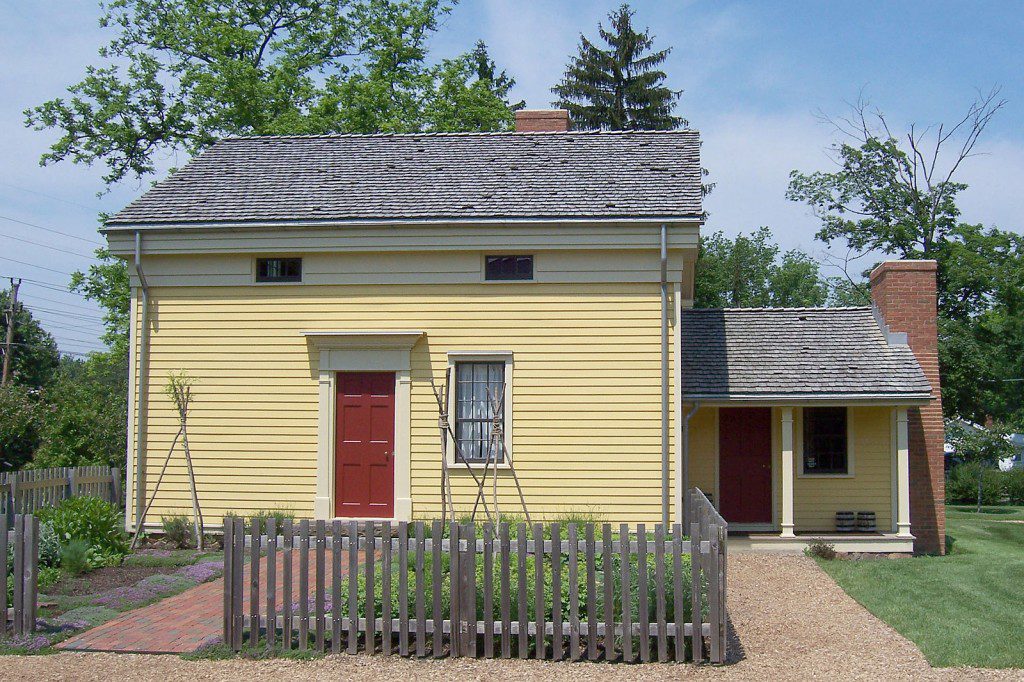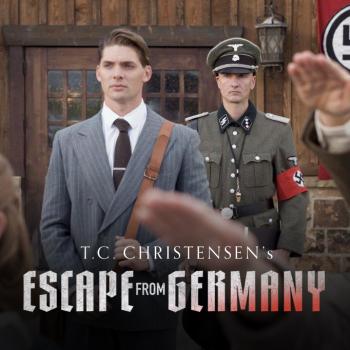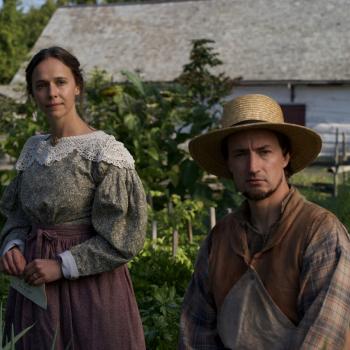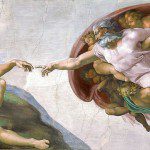
Trying to meet his financial obligations and support his family, Joseph Smith established a store in Kirtland fairly late in 1836. The sojourn of the Saints there would turn out to have little more time to run after that, and he apparently operated the store for less than a year — partly, it seems, because his compassion outpaced his desire to make a profit.
Brigham Young’s recollections (at Journal of Discourses 1:215 and 3:121) are tinged with more than a little exasperation on that score, as he sketches some hypotheticals based on his own knowledge and experience with the Prophet:
Joseph goes to New York and buys 20,000 dollars’ worth of goods, comes into Kirtland and commences to trade. In comes one of the brethren, “Brother Joseph, let me have a frock pattern for my wife.” What if Joseph says, “No, I cannot without the money.” The consequences would be, “He is no Prophet,” says James. Pretty soon Thomas walks in. “Brother Joseph, will you trust me for a pair of boots?” “No, I cannot let them go without the money.” “Well,” says Thomas, “Brother Joseph is no Prophet; I have found that out, and I am glad of it.” After awhile, in comes Bill and sister Susan. Says Bill, “Brother Joseph, I want a shawl, I have not got the money, but I wish you to trust me a week or a fortnight.” Well, Brother Joseph thinks the others have gone and apostatized, and he don’t know but these goods will make the whole Church do the same, so he lets Bill have a shawl. Bill walks off with it and meets a brother. “Well,” says he, “what do you think of brother Joseph?” “O he is a first-rate man, and I fully believe he is a Prophet. See here, he has trusted me this shawl.” Richard says, “I think I will go down and see if he won’t trust me some.” In walks Richard. “Brother Joseph, I want to trade about 20 dollars.” “Well,” says Joseph, “these goods will make the people apostatize, so over they go, they are of less value than the people.” Richard gets his goods Another comes in the same way to make a trade of 25 dollars, and so it goes. Joseph was a first-rate fellow with them all the time, provided he never would ask them to pay him. In this way it is easy for us to trade away a first-rate store of goods, and be in debt for them. . . .
I have known persons that would have cursed brother Joseph to the lowest hell hundreds of times, because he would not trust out everything he had on the face of the earth, and let the people squander it to the four winds. When he had let many of the brethren and sisters have goods on trust, he could not meet his liabilities, and then they would turn round and say, “What is the matter brother Joseph, why don’t you pay your debts?” “It is quite a curiosity that you don’t pay your debts; you must be a bad financier; you don’t know how to handle the things of this world.” At the same time the coats, pants, dresses, boots and shoes that they and their families were wearing came out of Joseph’s store, and were not paid for when they were cursing him for not paying his debts.
Even after the Saints abandoned Kirtland, Joseph was still trying to pay off what he owed from his store.
It’s reminiscent of the Church today: If its finances were imprudently managed, the Church and its leaders would be harshly criticized. However, since Church leaders manage its finances prudently, they and the Church are harshly criticized for supposed indifference to poverty and suffering. The most important thing, it often seems, is to criticize.
Posted from Mentor, Ohio
















